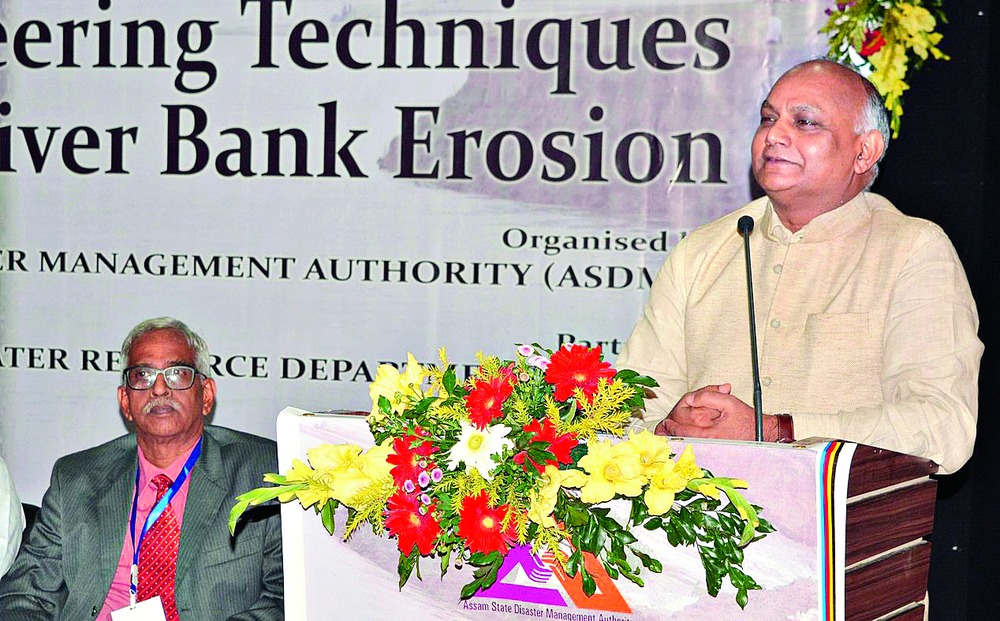
Guwahati, Nov. 22: Bangladesh soil conservationist Mohammad Sariful Islam today extended his expertise to mitigate erosion of the Brahmaputra banks in Assam with a hope to address the flood problem in his country.
The Brahmaputra, which has its origin in Chemayungdung glacier in Tibet (where it is called Tsangpo) after passing through Arunachal Pradesh and Assam, enters Bangladesh to form the Brahmaputra-Ganga delta before meeting the Bay of Bengal.
"Because of massive erosion in Assam and upstream, the river brings lots of silt, which raises the riverbed resulting in massive floods in Bangladesh. If floods in my country need to be mitigated, river-bank erosion need to be checked in Assam," Islam told The Telegraph.
Islam, a civil engineering professor of Bangladesh University of Engineering and Technology, was here to attend a two-day workshop on Application of Bio-Engineering Techniques for Mitigating River Bank Erosion organised by the Assam State Disaster Management Authority (ASDMA) that began here today.
The workshop delved in finding bio-engineering techniques, that is, the science of applying the concepts and methods of biology (and secondarily of physics, chemistry, mathematics and computer science) to solve real-world problems.
Islam had suggested scientific cultivation of a few selected plants along the banks of river in the north Bangladesh districts on the Padma river, which had stopped river-bank erosion drastically.
"I have suggested a variety of grass called Binny ghash along the river beds. They are shrubs with sturdy stems and its roots spread far which hold the soil and stop it from eroding. To involve society, we have asked them to cultivate those plants along the river banks as the leaves are good fodder for cow, the sturdy stem acts as fence during floods to stop cattle from drifting away and the roots have medicinal values," the soil conservation expert said.
Islam's project is worth Bangladesh Taka 80,000.
Almost 80 per cent of Bangladesh is made up of flood-prone plains.
Islam is currently working in two projects of scientific plantation in the coastal districts and Haor areas of Bangladesh, which are the worst-affected areas of the country.
"However, the plantation is different in different parts of the river based on the soil pattern and people's tendency to cultivate there. But a similar pattern of riverside plantation can be done here too to stop erosion. I feel experts from both the countries (India and Bangladesh) should chart a plan to stop erosion," Islam said.
Today's workshop was attended by Gearge Koshy, principal consultant, Earth and Water from Chennai, Hidetoshi Yokota, general manager from Bridgetone Corporation in Japan, Hemanta Hazarika, Kyushu University, Fukuoka, Japan, experts from Assam and officials from various departments like water resources, soil conservation, PWD, environment and forest, Brahmaputra Board, Geological Survey of India, North Eastern Space Applications Centre and other NGOs.











